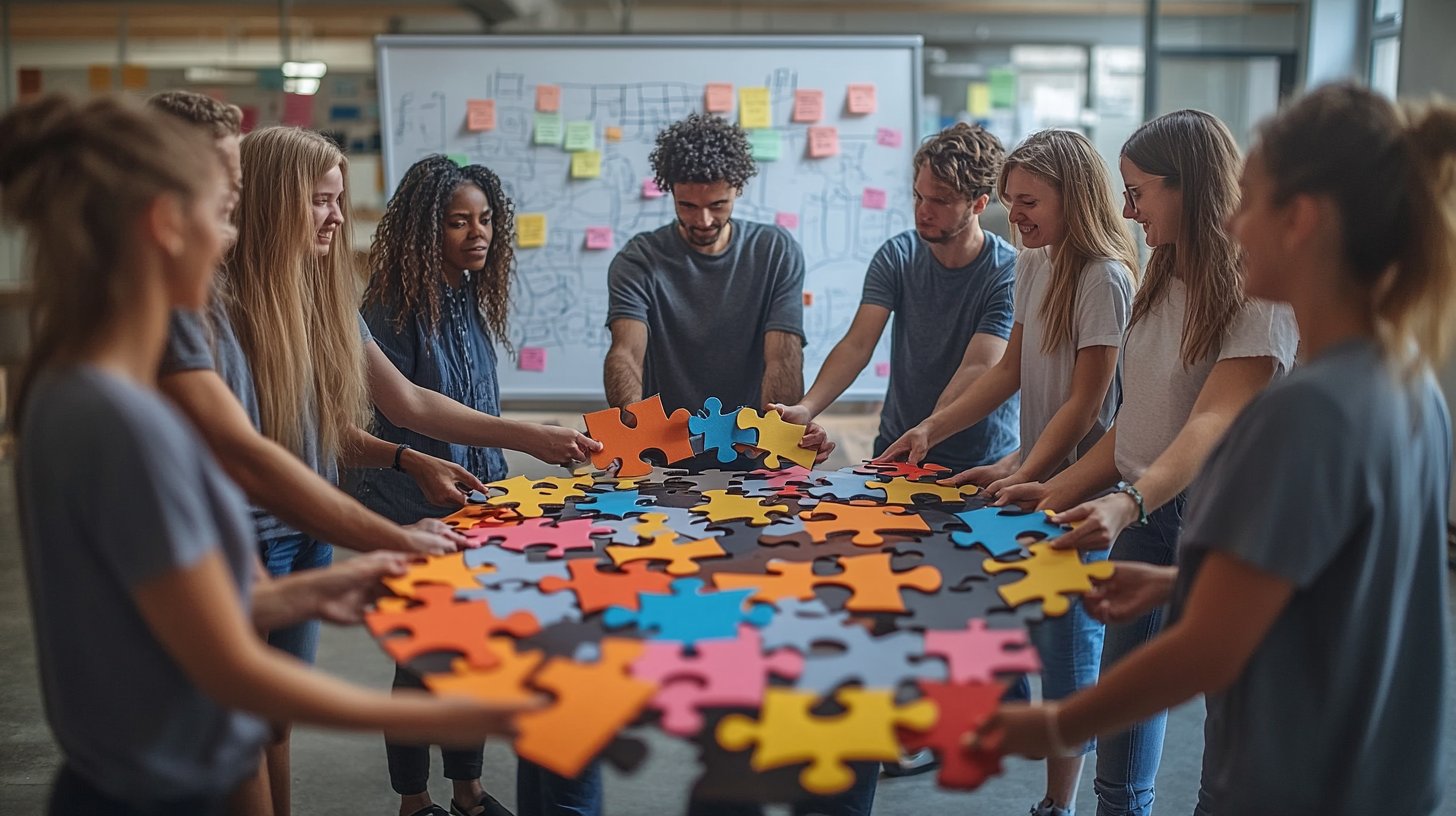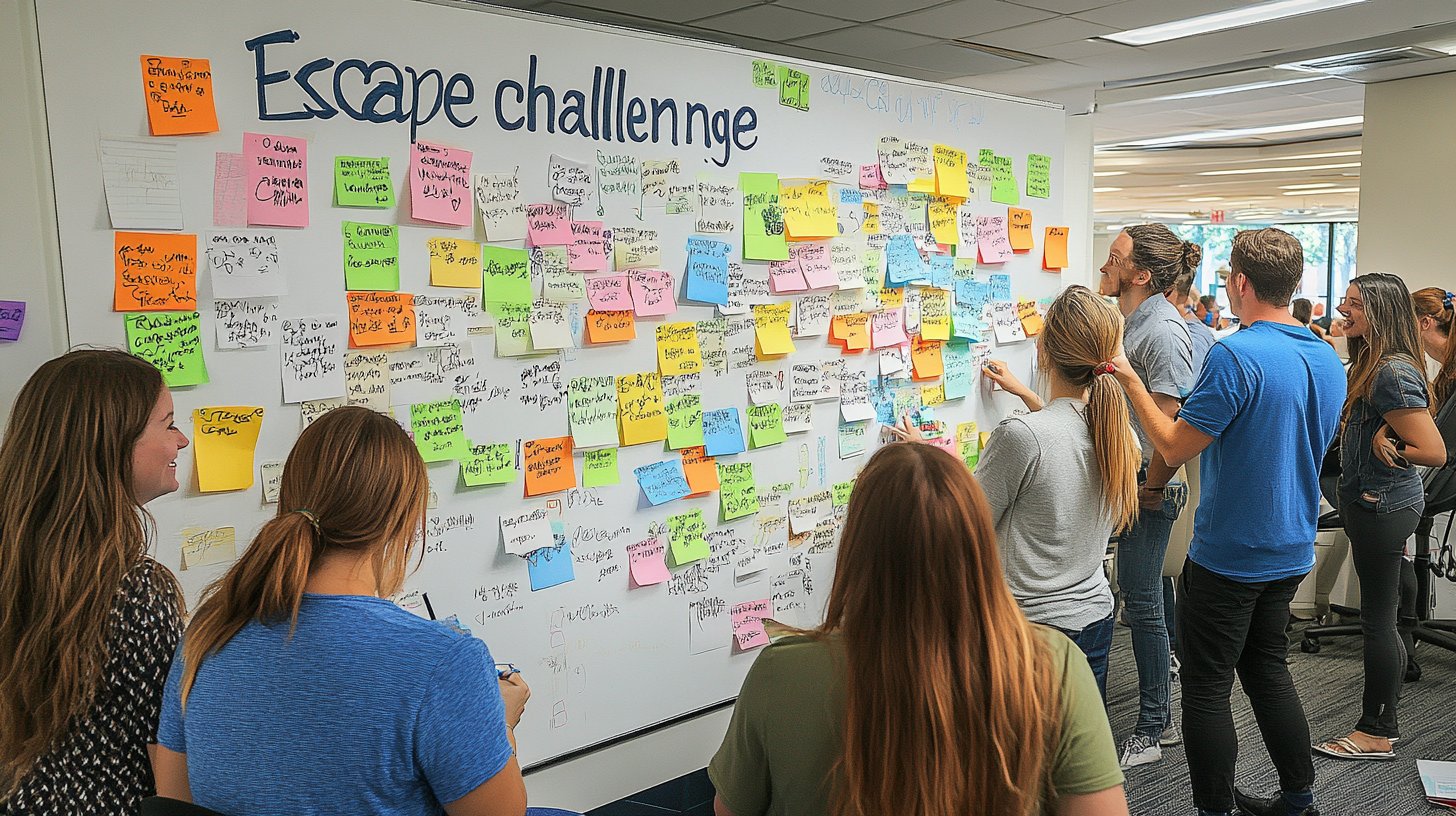Organizing a team building may seem simple, but it requires genuine expertise. Are you looking to strengthen your team’s cohesion, motivate your employees, or improve internal communication? Each goal demands specific skills to ensure an experience that meets your expectations.
Are you wondering how to choose activities tailored to your team or how to ensure smooth organization? These concerns are valid. The success of your event relies on meticulous planning, active listening to each participant’s needs, and flexible adaptation to unforeseen circumstances.
Here, we reveal the key skills you need to develop or seek out to organize a team building that unites, inspires, and energizes your team. With an empathetic and personalized approach, you can create a memorable and beneficial collective experience.
Human skills and communication
The success of a team building primarily relies on strong human skills. Understanding participants’ needs and expectations, considering their unique characteristics, and adapting activities accordingly are essential. This requires sharp listening skills and significant empathy.
The art of communication also plays a crucial role. Clearly explaining the activities, ensuring everyone understands the goals, and being able to motivate and encourage teams are key points. Smooth communication helps resolve issues quickly and ensures the day runs smoothly.
Team cohesion
Another fundamental aspect is the ability to create and maintain team cohesion. The organizer must foster an environment of trust and mutual respect. Activities should help team members get to know each other better and build strong bonds, enhancing future collaboration.
To strengthen cohesion, it’s essential to propose activities that require close collaboration. Group games, collaborative challenges, or creative workshops can be excellent for encouraging interaction among participants.
Activity selection and planning
Choosing the right activity is particularly important. It must align with the objectives set beforehand, whether to strengthen team spirit, improve communication, or encourage creativity and innovation. Selecting activities tailored to the target audience requires a solid understanding of available options and a keen sense of adaptation.
Rigorous planning is another critical aspect. Anticipating every detail, preparing for contingencies, and creating a precise schedule ensure the event runs smoothly. This includes logistics (booking venues, coordinating schedules) and preparing necessary materials.
Time management
Proper time management greatly contributes to a successful team building. The organizer must ensure activities are well-paced, avoiding downtime or rushed situations. Good timing ensures better participation and engagement from everyone.
Adopting a flexible approach can help adjust the program based on participants’ needs and reactions. Often, a slight last-minute adjustment can turn an enjoyable activity into a memorable experience.
Clear objectives and leadership
Defining clear objectives in advance is the foundation of a successful team building. What do you want to achieve? Is it improving internal communication, strengthening team cohesion, or stimulating creativity? Setting clear goals allows you to design activities aligned with these ambitions.
Leadership is crucial in this context. The organizer must set an example, adopting a positive and motivating attitude. Leading with confidence creates a conducive environment where everyone feels involved and valued.
Team spirit and motivation
Team spirit thrives on shared values and common motivations. Encouraging active participation from each member reinforces the sense of belonging and boosts engagement. Choosing activities that prioritize cooperation can be particularly beneficial.
Acknowledging successes, no matter how small, and showing appreciation for efforts help maintain high levels of motivation. Everyone should feel their contribution is vital to the collective success.
Creativity and innovation
Integrating elements of creativity and innovation into activities can make a real difference. Opting for original solutions spices up the experience and captivates participants’ interest. These unique moments encourage new ideas and enrich overall interactions.
For example, thematic workshops where teams collaborate on innovative projects can be organized. Creative dynamics not only stimulate imagination but also foster collective thinking, adding significant value.
Participant well-being
Taking care of participants’ well-being is an aspect that shouldn’t be overlooked. Ensuring everyone feels comfortable, respected, and included contributes to a relaxed atmosphere that encourages positive interactions. Regular breaks, moments for relaxation, and attention to everyone’s needs significantly enhance the overall ambiance.
A healthy and welcoming environment promotes openness and friendliness. An organizer attentive to details (food, comfort, pleasant setting) maximizes the chances of success.
Adapting activities to profiles
Considering the diverse profiles of participants is crucial for ensuring the success of a team building. Each individual brings unique value and may react differently to the same stimuli. Offering a variety of activities ensures reaching the widest audience and enriching the collective experience.
It’s necessary to adapt activities to both personal and collective expectations. Balancing intense moments with calmer periods and providing diverse approaches make the event more complete and satisfying for everyone.
- Venue selection and weather planning
- Coordinating material resources
- Budget management and financing
- Participant engagement
- Adaptability to unforeseen events
| Key Skill | Description |
|---|---|
| Communication | Explaining clearly and motivating the teams |
| Team cohesion | Fostering trust and strong bonds |
| Planning | Organizing every detail and anticipating issues |
| Leadership | Leading with confidence and inspiring participants |
| Creativity | Proposing original and innovative activities |
| Well-being | Ensuring participants’ comfort and satisfaction |
Recap of essential skills
To organize a successful team building, several skills are indispensable:
- The human ability to understand and meet participants’ needs.
- Clear and motivating communication.
- The capacity to strengthen team cohesion through suitable activities.
- A sharp sense of planning to anticipate and manage every detail.
- Inspiring and confident leadership.
- Integrating creativity to enrich experiences.
- Ensuring everyone’s well-being for a relaxed and engaging atmosphere.
By combining these skills, an organizer can create an environment conducive to collective performance, amplifying the positive effects of team building on the entire team.








